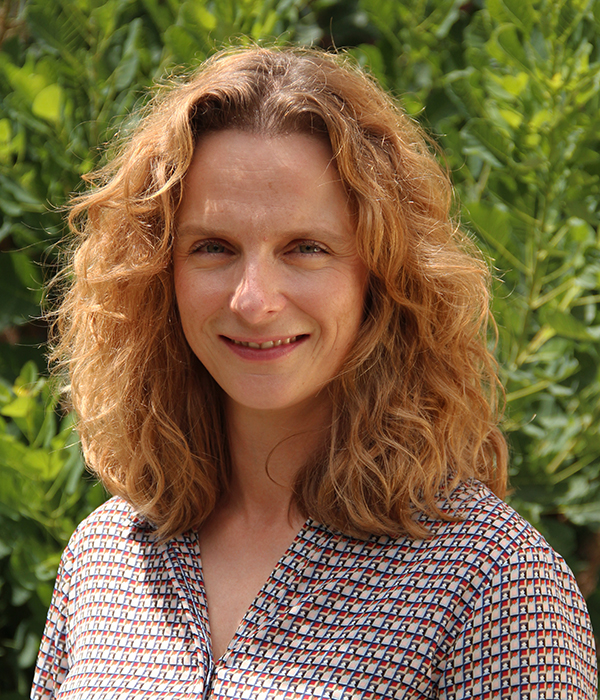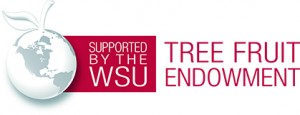Written by Ines Hanrahan, Amy May, and Mackenzie Perrault, May 2021
In 2021, the WA Tree Fruit Research Commission approved $1,396,455 to help fund twenty-seven (27) new projects in the areas of cherry, apple, and technology. In technology research, the Commission approved $459,029 to help fund five (5) new projects. All newly approved projects this year are funded 100% by apple.
2021 new technology project details:
Project Title: Validation of plant-based sensors for making irrigation decisions
Organization (s): Washington State University
PI (s): Kalcsits, L.; Bolivar-Medina, J.
Total Funding Amount: $105,405
Length: 2 years
Plant-based indicators integrate soil moisture availability with plant water demand which is driven by physiological and environmental factors. Several research-applicable technologies are available that measure plant water status in real time. This information could be useful for guiding irrigation decisions in commercial fruit orchards. However, even after decades of research, industry adoption of some of these technologies has been limited. This is largely due to a lack of thresholds and simple but accurate decision aid tools that process information and make irrigation decisions easier. Hence, this project will deploy and evaluate the accuracy and precision of dendrometers, sap flow sensors, and stem micro tensiometers in measuring plant water status. It will also identify critical factors affecting the adoption of these technologies in Washington State tree fruit production. Finally, the team will develop Extension materials and train growers in using these technologies.
Project Title: Smart Orchards Year 2 + optional connectivity
Organization (s): Innov8 ag, Washington State University
PI (s): Mantle, S.; Khot, L.
Total Funding Amount: $89,674
Length: 1 year
Availability of real-time orchard site information, specifically local weather conditions, soil water and nutrient status, and canopy vigor/tree health, will permit growers to precisely execute timely management decisions and avoid crop losses, thereby enhancing the competitiveness of the Washington’s fruit crops. Currently, growers cannot benefit from available or emerging technologies due to a disconnect between our ability to i) conduct reliable sensing and streamlined data transfer through a common interface, ii) compute big-datasets (i.e., high resolution spatiotemporal aerial & in-canopy imagery and 2D Light Detection and Ranging (LiDAR) point-cloud data), and iii) reliably transfer data products to end-user(s) for immediately actionable insights. This proposal addresses these gaps by continuing the ‘Smart Orchard’ project at Chiawana Orchards and by selecting a second site with a more varied topography.
Project Title: Novel on-the-fly variable-rate airflow & spray-distribution sprayer
Organization (s): Verdant Robotics, Inc.
PI (s): Garner, C.; Sibley, G.
Total Funding Amount: $125,000
Length: 1 year
Verdant Robotics has been developing computer vision based agricultural spray systems for two years (www.verdantrobotics.com). This project’s central goal is to greatly increase the targeted spray deposition with a secondary benefit of volume reduction in chemicals sprayed. The main objectives of the effort will be:
- Design and Build Real-Time Adjustable Air-assisted Orchard Sprayer
- Performance Measurement of the system for Redesign, in terms of:
- Deposition – amount of spray reaching target
- Material savings – reduction in chemical use relative to existing technology
- Drift – non targeted movement out of field
- Environmental impact – lowering chemical runoff and drift
The projected outcomes are producing savings for farmers and reducing the amount of drift, thus lowering the environmental impact and risks.
Project Title: Novel automatic crop health observer
Organization (s): Verdant Robotics, Inc.; Oregon State University
PI (s): Garner, C.; Sibley, G.; Johnson, K.
Total Funding Amount: $125,000
Length: 1 year
Advanced fire blight epidemics have the potential to cause enormous economic losses. This project aims to utilize novel powerful data tools to evaluate and develop spectral indices for early detection of fire blight, changes in tree health, and insect damage. It will associate a biological phenomenon (e.g., development of fire blight) with the photonics and spectroscopic signals that sensors can detect. A possible application for this technology is developing a Fire Blight Finder capable of pinpointing early infections before they are humanly perceptible. This ground-based rover system provides unique data, due to the compatibility between high oblique images and vertically oriented canopy architecture that result from the training system, versus what can be gleaned from nadir aerial imagery.
Project Title: The Next Fruit 4.0
Organization (s): Wageningen University & Research
PI (s): De Jong, P.F.
Total Funding Amount: $177,000
Length: 3 years
The project ‘the Next Fruit 4.0’ is part of a collaboration between the Netherlands, California, and Washington State. The project is focused on three objectives:
- Sustainability of production and chain by development of application of crop protection, leaf fertilization or plant hormones on (sub)tree level.
- Maximalization of produce by optimizing production and storage through growth optimization at the level of individual trees with the help of AI decisions models.
- Minimalization of costs by development of multifunctional robots who can replace labor and are efficient in the use of resources.
Anticipated results over 3 years include:
- A validated prototype precision sprayer for several fruit crops, which is directed at nozzle level, based on smart algorithms and decision models capable of detecting combinations of stress, disease, and pests.
- A validated and functional prototype robot for pruning and harvesting (pear).
- Validated sensors and algorithms to collect physiological and Phyto pathological characteristics of apple and pear.
- Validated decision models developed based on collected data and expert knowledge; targeted on production optimization, crop protection and storage.
- Data standards and protocols for data exchange.
- Economic validation and the stimulation of developed innovative technology adoption.
The project is a $4.96 million project financed by the Dutch Ministry of Agriculture, Nature and Food Quality, and by Dutch growers and companies. The Washington Tree Fruit Research Commission’s contribution will make exchange and collaboration with researchers and companies in Washington possible.
Contact:
Amy May (Administrative Officer): amy@treefruitresearch.com, 509 665 8271 ext. 2
Ines Hanrahan (Executive Director): hanrahan@treefruitresearch.com; 509 669 0267


